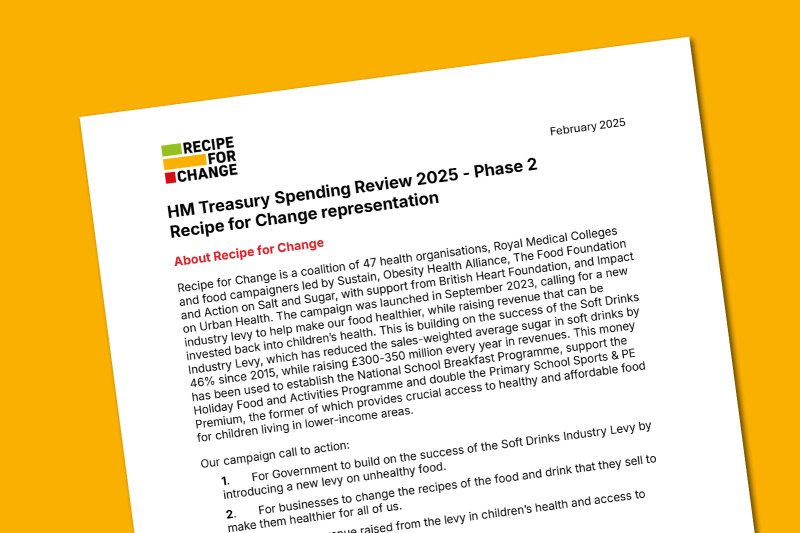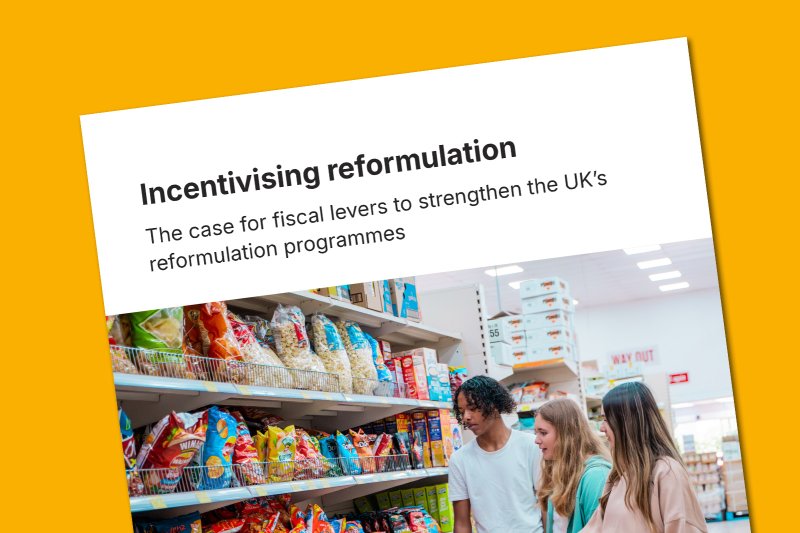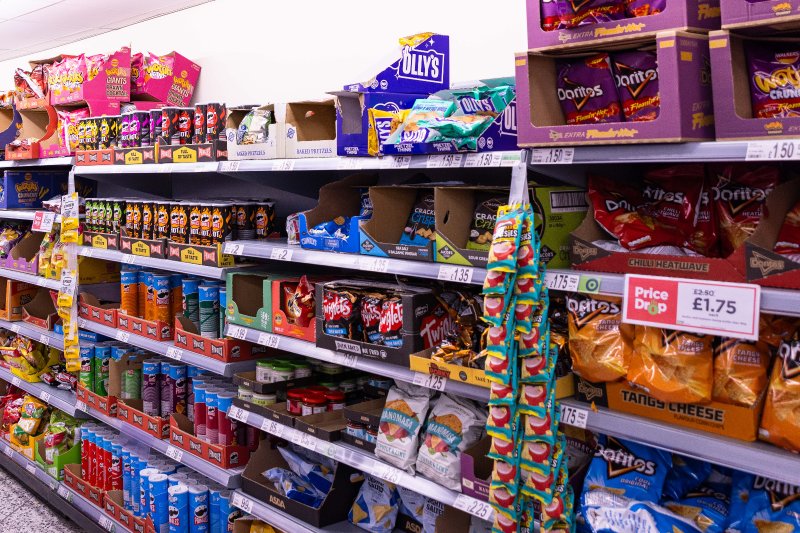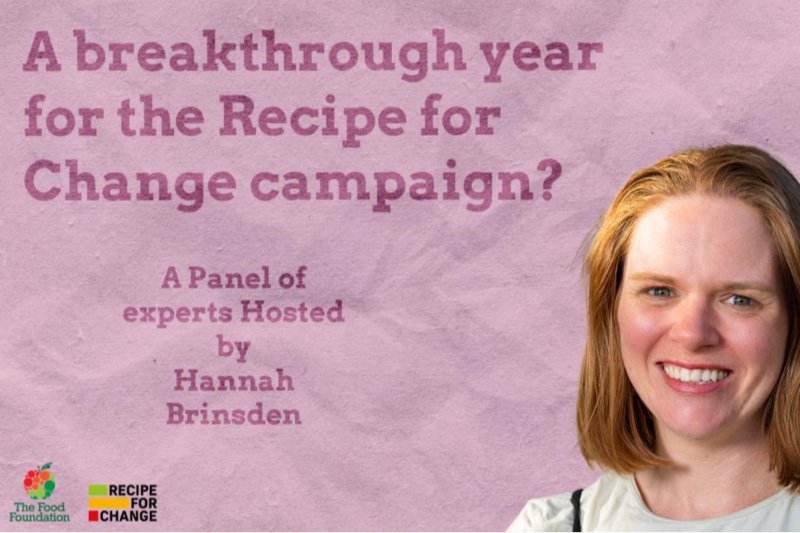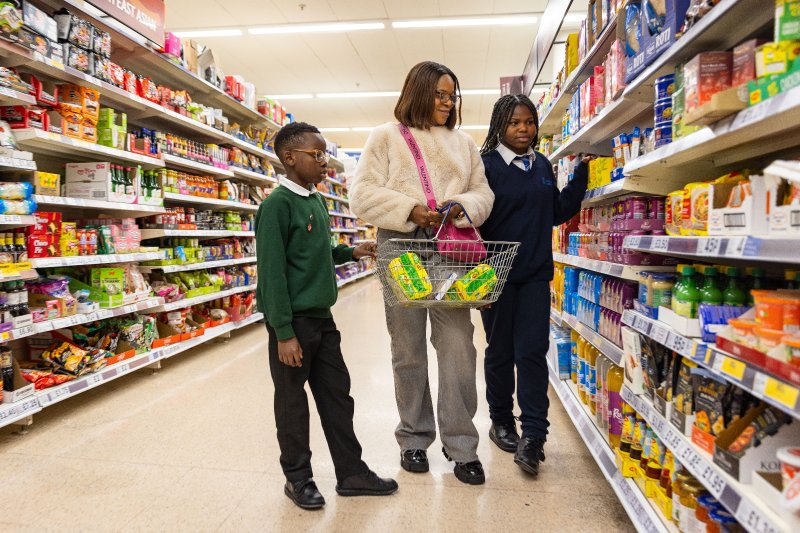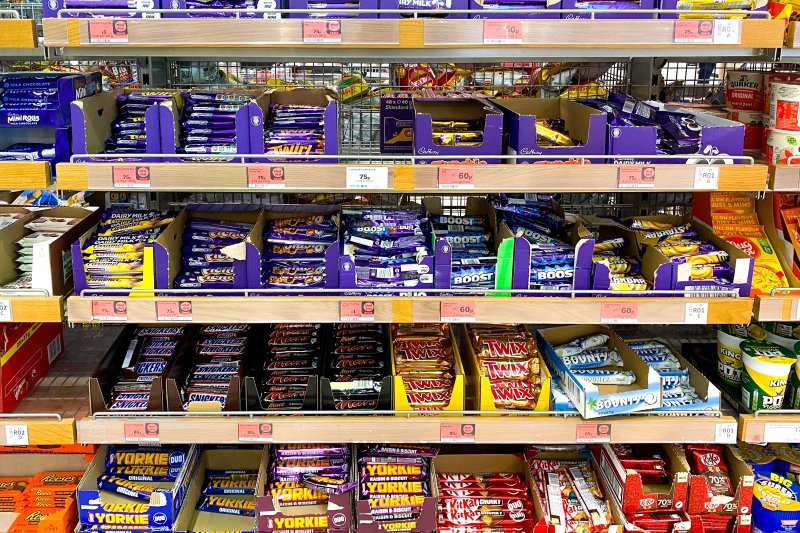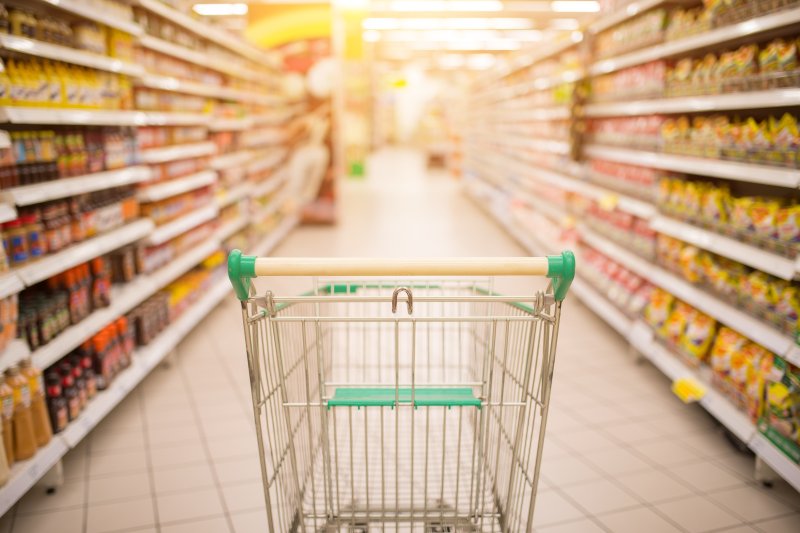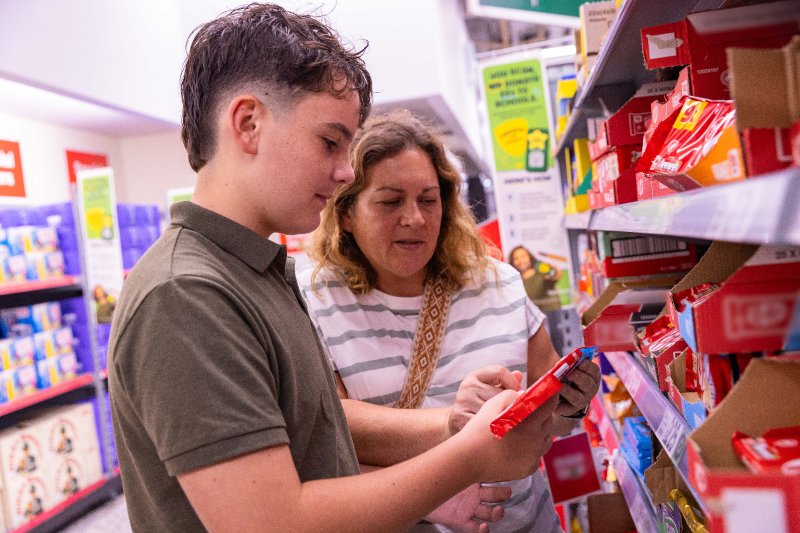Blog
Will this change do us good?
The word ‘change’ was the constant drumbeat of the new government’s election campaign. So what kind of changes will help get our children eating more healthy and sustainable food? Children's Food Campaign Manager Barbara Crowther reflects on priorities for a government focussed on change.
The recent election has delivered one of the biggest political changes in the political landscape in living memory. Over half of the seats (335 to be exact) in the House of Commons have a brand new MP, with Labour recording a major landslide and commanding majority. Meanwhile the Liberal Democrats secured their highest ever number of seats, and the Green Party quadrupled their representation in Parliament – both having made a strong case in their manifestos for expansion of healthy school meals. At the other end of the political spectrum, we see the first appearance of Reform UK to Parliament, whilst the Conservatives lost many influential figures including several former cabinet ministers and are likely to move into a leadership contest in coming months. All of this means we have not just a changed Government, but also a very different type of Opposition now.
In his short first speech on the steps of Downing Street, Keir Starmer used the word 'change' six times. With echoes of Suffragette slogans, at the first meeting of the Cabinet he also spoke about the government being judged by actions not words. Meanwhile new health secretary Wes Streeting is championing a change of focus on just treating illness to preventing it, and supporting public health. New junior health minister Andrew Gwynne now has 'prevention' in his job title too.
So what might we hope for in practice, that will deliver the positive change for good?
The change that ensures all children can access nutritious, affordable food?
The change that will protect children and families from the constant barrage of unhealthy sugary and salty food and drink promotions and advertising?
The change that gets companies making healthier food and drink for all of us?
Here’s some of what we’d like to see.
-
Restrict junk food marketing
A top priority in the first 100 days must be get moving to ensure the 9pm watershed and online paid-for advertising restrictions on less healthy food (already in legislation) happens no later than October 2025. There is no doubt that both the food and advertising industries will try to use this window of new government and newly elected MPs to lobby for further delays or weakening of measures. The new government must absolutely stand up to this pressure and follow the evidence-backed case for action.
Longer term, there several loopholes in the advertising and marketing regulations that should remain under consideration for future policy making by a new government. This includes current exemptions, other advertising media (such as outdoor advertising, cinema), out of home and delivery apps, sports sponsorship. It includes the ways in which companies can still use corporate brand rather than product-based advertising to get around the legislation. It includes how national policy can support councils to put in place local healthier food advertising and local planning policies. There will still be much to be done, even after a 9pm watershed and online restrictions finally come into force, and the Government must not rest on its laurels.
-
Ban high caffeine energy drinks to under-16s
This was announced in the Labour party manifesto and rightly so, as a piece of unfinished government business. Following a comprehensive consultation in 2018 that showed 93% support for a ban on sales to children, the former Government promised to introduce legislation, but following an understandable delay during the height of the Covid pandemic, nothing happened. A new evidence review by the FUSE team at University of Teesside indicated a wider set of risks to both mental and physical health of children from consumption of these drinks. Meanwhile new products such as Prime Energy have created even greater appeal to children and teenagers. Major retailers have backed the idea of legislation in line with drinks being labelled ‘not suitable for children’ and parents have called not just for an under-16 sales ban but much more prominent health warnings on the labels too. We hope our new minister for Public Health & Prevention Andrew Gwynne will now get the department to dust off the unpublished consultation response, update the evidence review including studies that have taken place since 2018, and get the process moving again. They could also look learning from Latvia, Lithuania and Poland, all of whom have already banned sales of energy drinks to children. Meanwhile, the Welsh government has opened up a new call for evidence on energy drinks as part of a consultation on a healthier food environment, so there is potential to align policy across all the devolved nations too.
-
Change for good on school food
Over a decade has passed since the transformative School Food Plan was published, ushering in universal school meals, cooking on the curriculum and strengthening school food standards.
In its manifesto, Labour committed to roll out universal breakfast clubs in primary schools, and there is valuable learning both from the National School Breakfast Programme and from Wales that could help shape a breakfast provision programme to be healthy, barrier and stigma free, flexible to meet children’s needs, and critically ensure it is properly funded and manageable for schools themselves.
However Labour’s commitment to improve school food cannot - and must not - remain limited to breakfast time. There is a sound economic cost-benefit case for reforming our school lunch system too, especially if applying the universalism principle, which would return £1.71 to the economy for every £1 invested in healthy school meals for all.
In 2018, when the government introduced the draconian £7400 net income threshold for eligibility for free school meals, it was described by the then shadow Education Secretary (now deputy Prime Minister) Angela Rayner as “pulling the rug from under hard-working families”, creating a cliff edge for low-income families that could be a disincentive for taking on further work. Six years later, the threshold remains unchanged, despite cost of living and wage increase, and it is only transitional protections during roll out of Universal Credit protecting these families on a temporary basis.
Dozens of local authorities are now engaged in opt-out auto enrolment for free school meals, to ensure children take up their entitlement and schools are not losing out on vital pupil premium.
Funding for free school meals has not kept pace with inflation, and many schools are being forced to cross subsidise budgets, adding to their overall financial pressures and stress on school leaders and catering teams.
Whilst acknowledging some of the concerns being expressed new Secretary of State for Education Bridget Phillipson has responded that it's not possible to do everything immediately they would like to in an ideal world. But surely this status quo, so robustly denounced by Labour whilst in opposition, cannot continue for much longer. Metro Mayors across the nation are pointing out the postcode lottery of access, and calling for long term funding settlements.
Offering more hope, a healthy school food movement has flourished over the past decade or more. The Soil Association Food for Life programme has worked with over 7,500 schools to improve quality, nutrition and sustainability of school meals. Wales, Scotland and London have been expanding universal primary meals, some London boroughs are trialling expanded secondary meals, and a range of programmes including Chefs in Schools, London Early Years Foundation and Royal Academy of Culinary Arts Adopt-a-school programme are training and supporting talented chefs to work in nurseries and school kitchens. The Jamie Oliver Good School Food Awards are annually deluged with entries showcasing the best of the best – from food growing to catering teams, pioneering head teachers and young campaigners.
There’s unanimous agreement that schools are also places for children to learn about good nutrition and how to prepare food. Labour has committed to recruit 6,500 new teachers, but the Food Teachers’ Centre says that the shortage of trained food teachers alone has reached 1000 in the past year.
There is a huge opportunity to leverage the superpowers of good school food, including leveraging the power of good public procurement for SMEs and local suppliers, ensuring robust monitored standards, and reshaping funding and access towards a vision in which no child is means-tested for food within the state education system. We hope the new Education team will rise to the incredible opportunity to do this.
-
Build on the success of the Soft Drinks Industry Levy
Over six years since the introduction of the sugary drinks tax, there is ample evidence on how applying this fiscal lever with industry has managed to turbo-charge sugar reduction. The latest evidence from University of Cambridge MRC Epidemiology Unit indicates in the first year children's daily sugar consumption from soft drinks consumption fell by three grams. The government’s own sugar reduction report shows overall sugar sold in soft drinks fell by 46 million tonnes from 2015 to 2020.
Yet as a nation, we are still consuming far too much sugar and salt, and unhealthy processed food and drink. Modelling done for our Recipe for Change campaign shows that a food industry salt and sugar tax (as proposed by the National Food Strategy) could potentially reduce up to two million cases of preventable ill health, including cardiovascular disease, type-2 diabetes, respiratory disease and some cancers.
If new Chancellor of the Exchequer Rachel Reeves needs to boost the available resources in order to invest in children’s health, expanding further levies on unhealthy food and drink could be the win-win that delivers Treasury support to improve child health through both reformulation and investment in programmes. The soft drinks levy alone has consistently raised over £300 million per year in revenues, enabling the launch of the current National School Breakfast programme and supporting DfE funding for the Holiday Activities and Food (HAF) Programme. An expanded levy approach could potentially deliver anything from £1 billion to £3 billion, depending on its scope.
-
Give babies and young children a healthier start
It’s now widely understood that action to deliver child health has to start at the very beginning, with pregnancy, early feeding and weaning. There is evidence that growth rates for children entering reception are falling below other countries, whilst one in four children already have tooth decay by the age of five. Toothbrushing programmes will support better dental health, but we must also the food and drink going into our children’s mouths from a very early age. Early years nutrition has often been overlooked in childhood obesity strategies, something that the outgoing public health minister Andrea Leadsom had started to champion. The UK needs to support breastfeeding and ensure tight regulation governing marketing of formula, as well as starting to address the growing and totally unnecessary (from a nutritional perspective) market in ‘growing up milks’. Our parents’ manifesto Our Children Our Future has called for a review of packaging and labelling of foods targeted at children – removing child-friendly characters and misleading health halo claims from ultra-processed products high in sugar, salt and artificial additives. The department for health has already been developing and consulting upon guidance for the industry on food composition, marketing and labelling of commercial baby and toddler foods, publication of which could be a first step, but we believe robust, mandatory regulation around this part of our food industry must be on the longer term agenda.
With the new government pledging to expand 100,000 new childcare places, including use of empty school classrooms to create more nurseries, we need to address the fact that our Universal Infant Free School Meals programme excludes the under-5s in nurseries, whilst providing free school meals for children in reception and Key Stage 1. There are a confusing plethora of voluntary guidelines and guidance on food in nursery settings, but no mandatory standards and no monitoring of what is actually happening. It's another postcode lottery for parents, who were shocked to learn this during our research with them. Our Children, Our Future manifesto calls for proper, monitored standards and increased support for nurseries to deliver appropriate nutrition, given the importance of these early years.
Finally, the government must shore up existing safety nets for very low-income parents, such as Healthy Start which provides vital support with purchase of fruit, vegetables and infant formula as well as access to free vitamin supplements for pregnant and breastfeeding parents. Eligibility for Healthy Start is still limited to those earning less than £408 per month before benefits, and the value of payments has not kept up with food price rises in recent years. In terms of the most vulnerable communities, Labour must extend permanent access to the scheme for families with no recourse to public funds and make the current unwieldy application process simpler for them. As with school meals, there is a strong case for auto-enrolling eligible families to receive these benefits, especially given the average uptake rate at 62.4% remains far below the government’s target of 75%. Despite outreach and awareness raising efforts, no local authority has yet achieved this.
A change will do us all good
What if... we had a school food system that truly delivers delicious, nutritious food – free at the point of access, just like desks, books and bathrooms – for all children from nursery to sixth form, without stigma or means testing, supporting good learning, concentration and energy so they can thrive and achieve?
That is a change that would save time and money for parents, support teachers to teach and do our children good.
What if.. the government reinvigorated approach to supporting parents with healthy nutrition from pregnancy through breastfeeding or formula feeding, that provides honest and transparent information on pack instead of cute cartoon characters masking free sugars and additives?
That is a change that would give a healthier start and do our children good.
What if.. a high caffeine drink carries a warning label saying ‘not suitable for children’, could not be sold to a child under 16, by anyone?
That is a change that levels the playing field for retailers and will do our children good.
What if ... food and drink advertising and marketing regulations were to put healthy products in the spotlight, reducing pester power, and making purchasing of healthier food and drink easier and more appealing?
That is a change that would make life easier for parents and do our children good.
What if ...The Treasury developed more financial incentives that encouraged companies to change their recipes to remove excess sugar and salt, and forces companies who produce unhealthy food to pay for the health harms they cause, and raised billions more to invest in our children's health?
That is a change that would reward responsibility and do us all good.
Read Our Children, Our Future - a parents' manifesto for healthy children's food
Read Sustain's reflections on priorities for first 100 days of new government
Barbara joined Sustain in 2018 and manages the Children’s Food Campaign, which champions children’s rights, parent power and government action to improve the food environment children grow up in. This includes campaigning for tighter regulations of junk food marketing to children, better school food and reducing children’s consumption of sugary or unhealthy food.
Barbara Crowther
Campaign Manager
Children's Food Campaign Sustain
Published 10 Jul 2024

